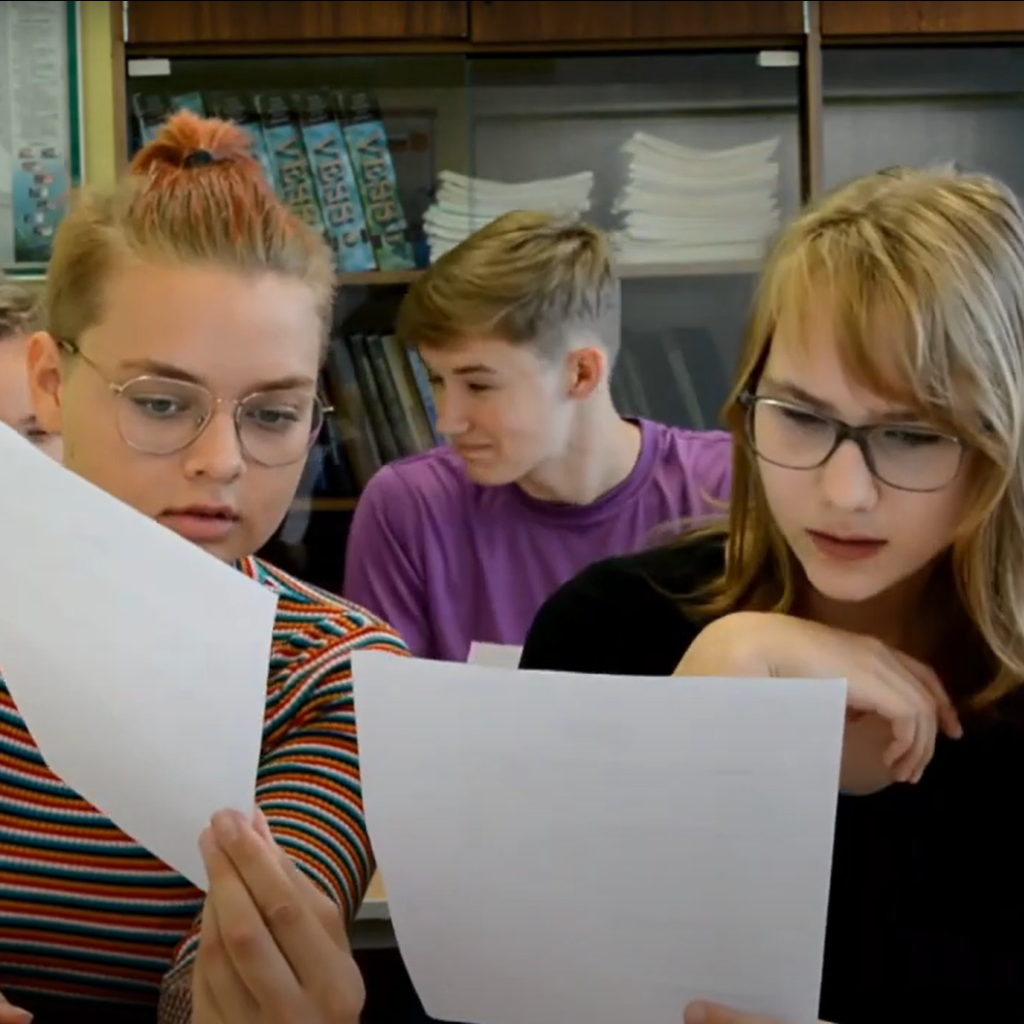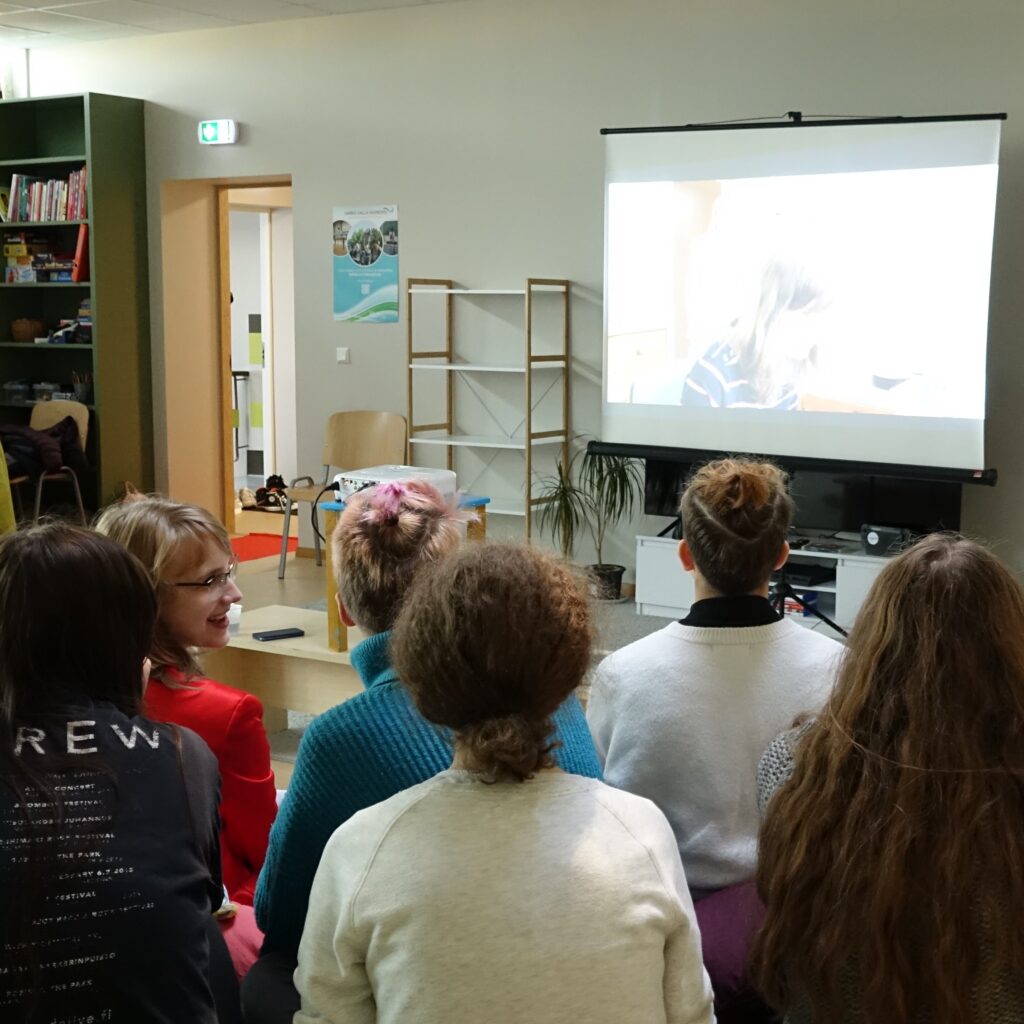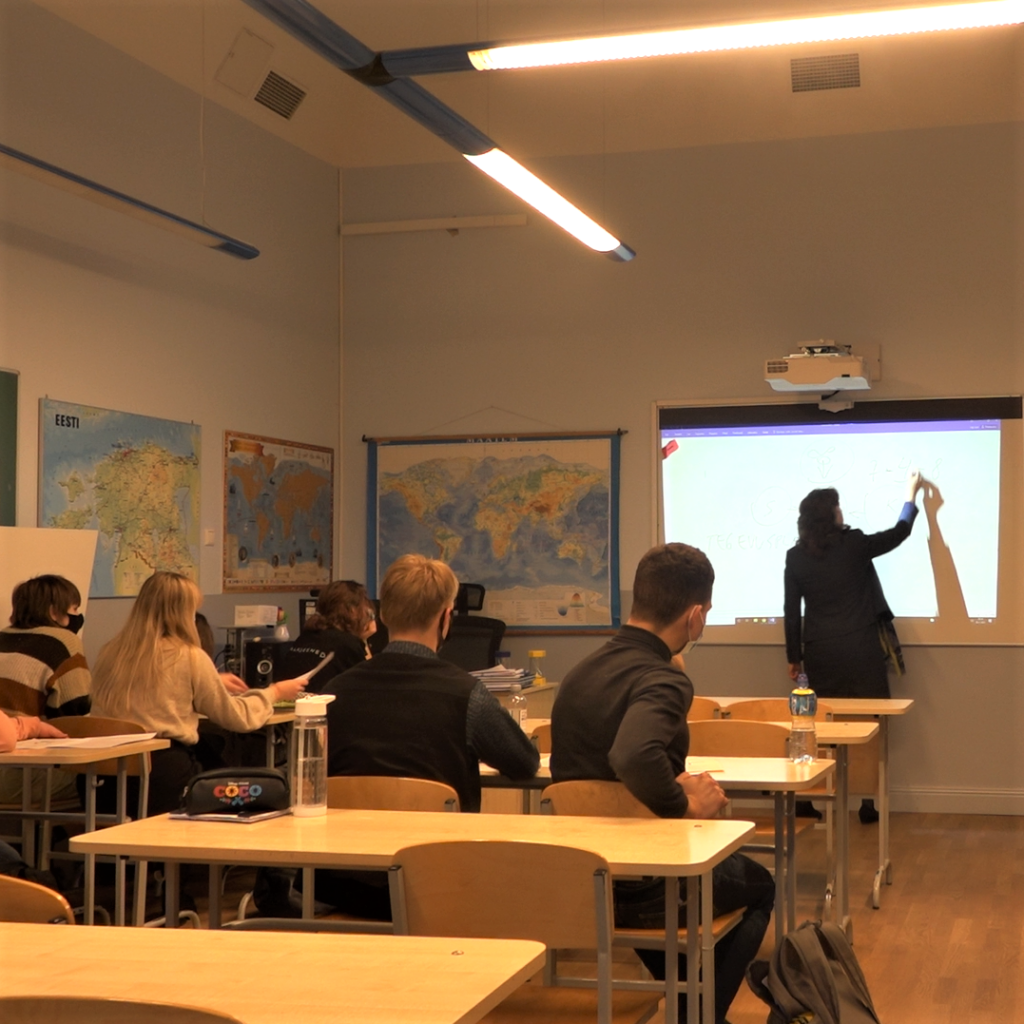Programme
STEPS
A programme to teach young people communication, self-management
and cooperation
skills
Watch the introductory video:

What is STEPS?
Have you ever thought that although the school teaches us important knowledge about
mathematics, physics and more, it doesn’t address such important topics as how to resolve conflicts or deal with complex relationships? However, research confirms that these are the 21st century skills needed for work and life that are not consciously developed in school curricula or by parents.
If you work with students, children or young people, or want to improve your own knowledge on communication and self-management skills, STEPS is for you. The step-by-step curriculum, together with the educational films, is aimed at secondary school teachers, mentors and youth workers, and includes instructions for teaching cooperation, communication and self-management skills (lessons, activities, etc.), a handbook and instructional videos for use in both formal and non-formal education.
What is the target group and purpose of the programme?
The aim of the programme is to increase the opportunities and competence of people working with young people to teach communication, problem-solving and cooperation skills through various teaching methodologies and materials. The broader goal of the project is to
develop young people’s communication, problem-solving and cooperation skills, as well as self-management and time management skills, complementing non-formal and formal learning opportunities with new teaching methodologies. At a time when the world is becoming more open and jobs more mobile and international, young people need the ability to communicate with peers and adults, as well as the skills specific to international communication and cooperation. Today’s young people have more opportunities in the labour market, but also more communication difficulties to overcome. We want to help them along the way.


Who can use this programme and how?
The programme and its parts can be used in various forms (as an elective subject, as part of a mentoring programme, in homeroom and humanities lessons, university courses, in youth centres,
in work experience programmes or camps). In the 2021/22 academic year, the programme was piloted in nine upper secondary schools in Estonia, and the feedback from teachers and students on the teaching of these practical skills and the programme itself has
been extremely positive. The materials for both teachers and youth workers have been tested in Estonia and Italy and have been very successful. Therefore, we believe that both this programme and the trainings introducing its content may be of interest to teachers of various subjects, youth workers and educational leaders.
What does the programme include?
The programme includes:
- Ten educational films depicting various problem situations based on real-life situations described by young people themselves. Some films are simply intended to stimulate discussion, some also illustrate solutions;
- A handbook for teachers to use in elective subjects, psychology lessons, mentoring or homeroom lessons. The handbook includes theory, descriptions of activities, group work, and games, and lesson plans for developing young people’s communication and self management skills;
- A handbook for youth workers with ideas for activities, events, discussions, etc .;
- A curriculum;
- Videos demonstrating explaining different topics and conducting discussions.
Thus, in addition to theory, interactive methods such as educational films, situation analyses, discussions, role-plays, group work, practical tasks, critical analysis of information and cases, etc., play an important role in the structure of the teaching materials.
For what age group are these materials best suited?
The materials are best suited for the upper secondary school (ages 16-19), last years of lower secondary school (ages 13-16), and first years of university.
Why STEPS?
The structure of the STEPS programme is innovative, based on the latest knowledge of the functioning of individuals and groups of people, incorporating several elements of neuroscience and involving young people in both content creation and implementation. The programme has been prepared very thoroughly and is cross-sectoral and international – we have involved youth workers and educational specialists from Estonia and Italy. The STEPS approach is innovative, as the teachers and youth workers who participated in our survey noted that there are currently no free teaching materials available that would be based on the complex social interactions of young people themselves and would use so many innovative and inspiring solutions (videos, involvement of young people, group work, analysis of young people ‘s own situations, etc.).
I’m interested. Would it be possible to hear a little more about it?
If you want to hear more about this programme or obtain new knowledge yourselves with your team, then we are ready to introduce this communication and cooperation skills programme and materials to your organization and talk about the experiences of Estonian schools and youth centres. We can also conduct some practical workshops so that participants can try out different communication techniques and methods (e.g. how to give non-judgmental feedback, avoid negative assumptions, how to behave in a conflict situation, whether and how it’s possible to manage one’s own negative emotions, etc.). We have seen that personal experience is the most convincing way to understand the practicality and usefulness of these skills. The topic could be of interest to different specialists working with young people (teachers, youth workers, school principals, mentors, psychologists, humanities teachers, youth workers) and would be well suited to the context of in-house training or other seminars / conferences for teachers. Write to elina.siilbek@gmail.com, kaja.jakobson@gmail.com or call +372 5099885 and find out more!
Does it cost anything? What should I do next if I want to use these materials?
The programme has been created within the framework of the international project “21CenturySoftSkills” and is funded by the Erasmus+ programme and the Estonian Education and Youth Board (EE01 Education and Youth Board, Erasmus+ and the European Solidarity Corps). The materials are available to everyone free of charge. Training activities are not funded by this project, so they are not free, but allow for a better understanding of the materials and personal experience of the new knowledge. The price of the training depends on the number of participants and the location of the training.